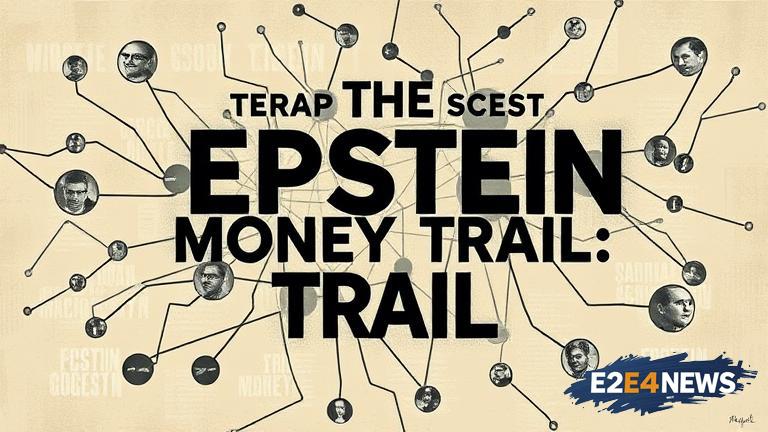The recent investigation into Jeffrey Epstein’s financial dealings has uncovered a complex network of transactions and relationships, involving prominent individuals such as Les Wexner and Leon Black. Epstein, a convicted sex offender, had amassed a significant fortune through his connections with wealthy and influential people. One of the key figures in Epstein’s financial circle was Les Wexner, the founder of L Brands, who had a long-standing business relationship with Epstein. Wexner had entrusted Epstein with managing his finances, which Epstein used to further his own interests. Another key player in Epstein’s financial dealings was Leon Black, the former CEO of Apollo Global Management, who had invested in several of Epstein’s business ventures. Epstein’s use of trust banks and offshore accounts allowed him to conceal the true nature of his financial activities, making it difficult for authorities to track his transactions. The investigation has also revealed that Epstein had used his wealth and influence to manipulate those around him, including his victims. The case has sparked widespread outrage and calls for greater transparency and accountability in the financial sector. As the investigation continues, more details are emerging about the extent of Epstein’s financial dealings and the individuals involved. The use of trust banks and offshore accounts by Epstein and his associates has raised concerns about the lack of regulation and oversight in these areas. The case has also highlighted the need for greater scrutiny of financial transactions and the importance of due diligence in preventing money laundering and other financial crimes. Furthermore, the investigation has shed light on the culture of secrecy and privilege that allowed Epstein to operate with impunity for so long. The involvement of high-profile figures such as Wexner and Black has raised questions about the extent to which they were aware of Epstein’s activities and whether they turned a blind eye to his wrongdoing. As the full extent of Epstein’s financial dealings becomes clear, it is likely that there will be further revelations and consequences for those involved. The case serves as a reminder of the importance of transparency and accountability in the financial sector and the need for greater scrutiny of those in positions of power. In addition, the investigation has highlighted the need for greater support and protection for victims of financial crimes and abuse. The Epstein case has also sparked a wider conversation about the need for greater regulation and oversight of the financial sector, particularly in areas such as trust banks and offshore accounts. Ultimately, the case serves as a reminder of the importance of holding those in power accountable for their actions and ensuring that the financial sector operates with transparency and integrity.
